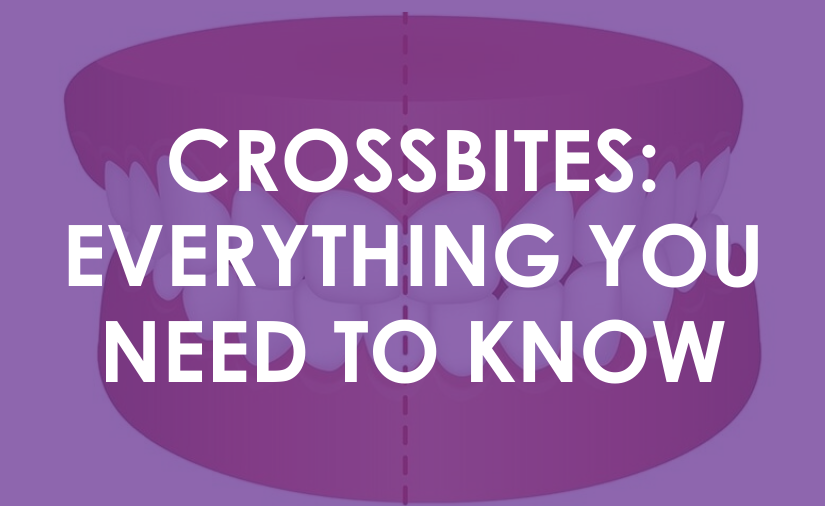By: Dr. Elizabeth Eggert
You’ve heard of an overbite and an underbite but have you ever heard of a crossbite? Perhaps not. However, crossbites are fairly common, affecting upwards of 16% of the population. In this post, we want to take a little time to explore this form of malocclusion so you know how to identify it, how to treat it and why treatment is important.
What is a crossbite?
A crossbite occurs when teeth are misaligned in such a way that the upper teeth fit behind the lower teeth when your mouth is at rest. If the crossbite affects the front teeth it’s referred to as an “anterior crossbite.” If the crossbite affects teeth in the back of the mouth it’s called a “posterior crossbite.”
What causes a crossbite?
There are several reasons why a crossbite can develop:
- Genetics
- Thumb sucking or tongue thrusting
- Mouth breathing
- Delayed loss of baby teeth and growth of adult teeth
What are symptoms that can result from a crossbite?
You may experience jaw pain or TMD, headaches, neck and shoulder pain or cranial tension stemming from any form of malocclusion, including a crossbite. Also, because teeth don’t line up properly, they can wear unevenly. They can also be difficult to brush well, resulting in tooth decay and gum disease. In severe cases, a crossbite may affect facial structure and cause issues with sleep apnea.
How are crossbites treated in children and adults?
A crossbite can be treated at any stage of life. However, because a child’s jaw is still developing, in many cases a palatal expander accomplishes the task. These expanders widen the upper palate so the upper teeth can sit properly against the lower teeth. Braces and orthodontic headgear are also common solutions for children with crossbites.
For adults, braces can also be effective, however, for adults with severe crossbites, surgery is often the best path forward.
In some cases, Dr. Elizabeth and Dr. Jeff can treat your mild crossbite with Invisalign orthodontic treatment or they can restoratively mask a crossbite by bonding, crowning or reshaping your teeth for a more even bite. However, in the case of a severe crossbite, Dr. Elizabeth and Dr. Jeff will likely refer you to an orthodontist and perhaps an oral surgeon for a consultation.
If your bite is misaligned, we recommend you come into our office for a consultation. The benefits of correcting an underbite, overbite or crossbite go far beyond aesthetics.

